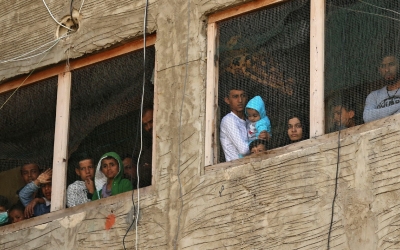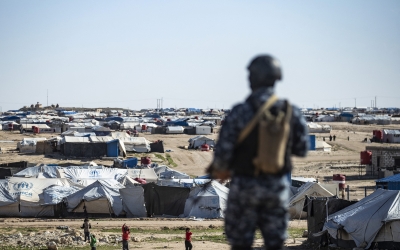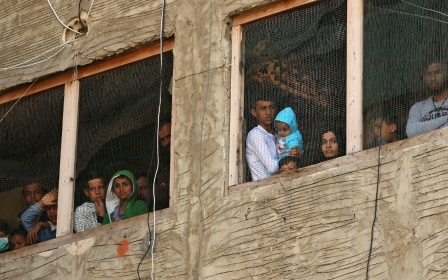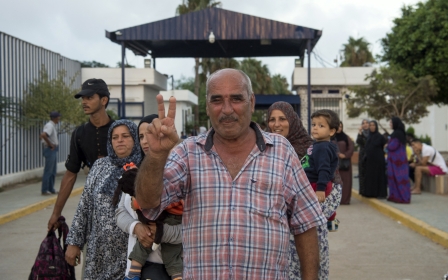Denmark to deport refugee facing arrest and torture back to Syria
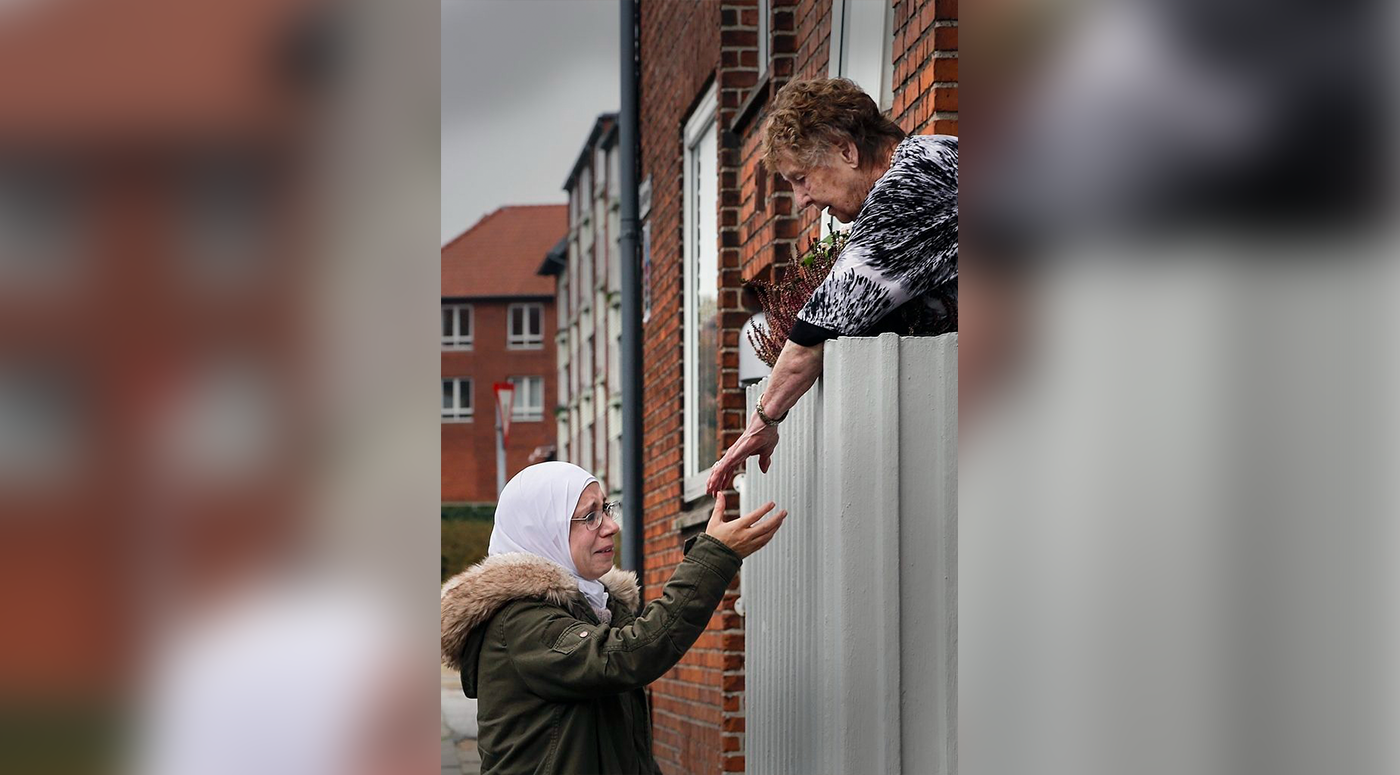
A Syrian refugee who says she could be arrested and tortured if sent back to Syria has been taken to a Danish detention centre, where she is awaiting deportation.
Asmaa al-Natour, an activist who fled her homeland in 2013, has lived in Denmark since 2014, after claiming asylum with her son and husband Omar. Since coming to Denmark, Natour and her family have learnt the language, found employment, paid local taxes and made Danish friends.
New MEE newsletter: Jerusalem Dispatch
Sign up to get the latest insights and analysis on Israel-Palestine, alongside Turkey Unpacked and other MEE newsletters
However, earlier this year, Denmark became the first European country to publicly declare its intention to send Syrians back to government-held areas inside the country.
In June, Natour received a notice from immigration services that she was no longer eligible for asylum.
Speaking from the detention centre on Friday, Natour told MEE she was "distraught" and "utterly heartbroken" by the prospect of deportation.
"Denmark has become a graveyard for refugees' hopes and dreams," she said.
Natour's husband, a former government employee in Syria, has also failed in an appeal against deportation.
Documentation seen by Middle East Eye shows that the Danish immigration services "doubted" that Omar was a government employee despite his showing documentation proving otherwise.
Last week, authorities gave the couple seven days to hand themselves over to the Sjaelsmark detention centre in Copenhagen, or face forcible removal from their homes in Denmark.
Son able to stay but not to see family
Natour's son is the only member of the family eligible to remain in Denmark because he faces the prospect of being conscripted into the military back in Syria. He has been unable to see his parents.
'We will be sent back to Syria or put in deportation centres, all because they believe that Damascus is safe under Bashar al-Assad'
- Asmaa al-Natour
Images posted online by activists showed emotional scenes as Natour said goodbye to her Danish neighbours on Tuesday before she headed to the detention centre.
In June, Natour told MEE that her years of activism in Daraa, where the Syrian uprising began, could land her in prison in Syria.
"We will be sent back to Syria or put in deportation centres, all because they believe that Damascus is safe under Bashar al-Assad," she said, having received her final notice.
"They have killed our motivation to keep living in this life. I am so scared for my husband, and I am scared for my children."
Danish authorities have failed to say when Natour and her husband will be deported.
Abuses detailed
Earlier this month, Human Rights Watch released a report detailing abuses faced by Syrians returning to Syria.
The US-based rights group documented 21 cases of arrest and arbitrary detention, 13 cases of torture, three kidnappings, five extrajudicial killings, 17 enforced disappearances and one case of alleged sexual violence.
Alysia Grapek, a Danish refugee activist who has helped raise awareness and campaigned for Syrians not to be deported from Denmark, said: "Asmaa and Omar's case is one of the many that have gained international attention and caused the world to take notice of Denmark's cruel and inhuman treatment of Syrian refugees.
"With the release of a Human Rights Watch report this month documenting the horrors that Syrian refugees face upon returning to Syria, Denmark is forcing refugees to choose between indefinite detention in deportation camps or risking arrest, torture, abuse and death.
"It is crucial to keep putting pressure on the Danish government and speaking out against its horrific treatment of Syrian refugees."
Deeming Damascus and its surrounding areas safe, the Danish government has sent out notices to hundreds of Syrians who have had their residency permit renewals denied or revoked and who now await a final decision by the Danish Refugee Appeals Board.
The move is part of a series of new laws introduced by Danish legislators, who have declared their aim to have zero asylum-seekers, reversing the country's once liberal approach to refugees and support for their integration.
At the height of the European refugee crisis in 2015, Denmark took in 21,000 refugees who reached its border. But later the same year, Danish authorities tightened restrictions on refugees entering the country.
Middle East Eye delivers independent and unrivalled coverage and analysis of the Middle East, North Africa and beyond. To learn more about republishing this content and the associated fees, please fill out this form. More about MEE can be found here.


